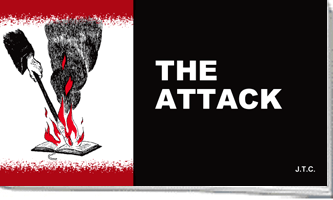Can You Trust Your Bible Scholars?
When you read the Bible, you must trust the scholars who gave you that Bible. But how do you know which scholars to pick?
The following is an interview with David W. Daniels, author of a new book: But I Trust the Scholars!
BC: Why is it so hard to get people to discuss the Bible version issue?
Daniels: Well, the first thing you’re going to hear people say is, “But I trust the scholars.” In fact, it’s almost like a mantra. The truth of the matter is, though, everybody trusts scholars. The question is, which scholars do you trust? Where do you draw the line as to whether they are being scholarly in the right way versus being scholarly in the wrong way?
BC: So, what are the right and wrong ways to be scholarly?
Daniels: Throughout the scripture era, from 4,000 BC through 100 AD loosely speaking, there are individuals who wrote scripture by inspiration of God and those were scholars. They were people who knew how to write, they knew various thoughts of the day, but their emphasis and their focus and what they wrote was based on their relationship with God and believing His words.
BC: They were faithful in getting down exactly what God wanted to say.
Daniels: Nothing added; nothing taken away from what God said. Lots of verses on this:
To Moses: “Ye shall not add unto the word which I command you, neither shall ye diminish ought from it,” (Deut. 4:2)
Solomon: “Add thou not unto his words, lest he reprove thee, and thou be found a liar.” (Prov. 30:6)
Revelation 22:18-19: “...If any man shall add unto these things, God shall add unto him the plagues that are written in this book: And if any man shall take away from the words of the book of this prophecy, God shall take away his part out of the book of life...”
(See also Jeremiah 26:2.)
BC: But if they start by doubting those words, changing those words, re-arranging those words, deciding those words aren’t good enough, that is another kind of scholar that you don’t want to follow.
Daniels: Exactly! You go find the Bible that was put together by scholars who feared to change the words. Their goal was to find exact English words and phrases for the original Hebrew and Greek so that the full meaning would be translated.
BC: Besides precise translations, what are other differences between these two kinds of scholars?
Daniels: Look at their faith: do they believe the Bible as it is, or do they have another philosophy or theology? It’s like a grid. When they lay these grids onto the scriptures, then those scriptures are no longer pure. They have man’s grid on top of them and there’s all sorts of holes, there’s all sorts of places where they can’t see it all. They’re only seeing what fits their grid.
Many modern bibles have a grid that favors Roman Catholicism. Others show that the scholars do not believe in the deity of Christ.
BC: So, if we can’t trust the scholars, who do we trust?
Daniels: It’s not who, it’s what. That’s why I call the King James Bible an equal opportunity offender. It plays fair with everybody, by not playing favorites with anybody. We are wrong, the scripture is right. We don’t get to change the scripture, the scripture changes us. We don’t get to judge the scripture, the scripture judges us. And, when we see those scripture scholars, we judge them by the scripture and not the other way around. The whole world has been, for a hundred something years, doing the reverse.
That’s why I wrote But I Trust the Scholars, to help you discover which scholars —and which Bible— you can trust.
- See more articles on related topics:
- Bible Versions
- Bible Translation
- Theological Importance
- Two Types of Bible Versions
Other Articles from July/August 2019:
More on Bible Versions:
Products of Interest:
-

But I Trust The Scholars
80 pages
There are two kinds of Bible scholars: the scholars of faith and the scholars of doubt. Which one will YOU trust? -

Why They Changed the Bible
228 pages
See who is behind the gradual changing of modern Bibles. There’s no guessing about what these people believe. They will tell you, in their own words! 
Attack, The
See the behind-the-scenes struggle to destroy the King James Bible, and how God preserved it.-

Sabotage?
32-PAGE, FULL COLOR COMIC BOOK - See the struggle through the ages to keep God’s Word pure, and learn which Bible can be trusted... and why!



